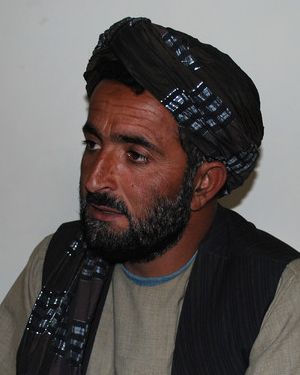March 31, 2012
Annan's Syrian Plan Circles Drain
March 30, 2012
Neoliberal Egypt: The Hijacked Revolution
By Dr Jason Hickel, published in Al Jazeera:
London, United Kingdom - The ouster of Hosni Mubarak in February 2011 set off a spate of political reforms in Egypt culminating in the recent parliamentary elections and the ascent of the Muslim Brotherhood's Freedom and Justice Party. Yet the meaning of the 2011 "revolution" remains far from decided.
When Egyptians rose up last year, it was not only against tyranny and political repression, but also against the neoliberal economic order - designed by the United States - that has generated hunger, poverty and inequality in Egypt since the 1980s. For most people, these latter concerns were at least as pressing as the former, though they have been completely obscured in the prevailing media discourse. Now the tragedy is that, when it comes to economic policy, Egypt’s new rulers seem set to reproduce more of the same.
Khairat el-Shater - multimillionaire businessman, deputy chairman of the Muslim Brotherhood, and likely candidate for prime minister of the coalition government - has been forthright about his economic ideology. He promotes a version of Islam that explicitly valourises free-market capitalism. He has clamped down on dissent among those within the Brotherhood who hold different ideas about how the economy should be run. El-Shater's partner, Hassan Malek, the Brotherhood's next most influential businessmen, has advocated for policies along similar lines.
While hoping to train a higher-skilled workforce and build the country's manufacturing base for import substitution (two concessions to the economic left within the Brotherhood), el-Shater has openly espoused free markets, deregulation and other policies geared toward attracting foreign direct investment - the pillars of neoliberal economics.
The Brotherhood's new position on economic policy has delighted the United States. US lawmakers have pushed hard since the beginning of the uprising to foster a form of political Islam compatible with US economic interests and the ideology of the Washington Consensus. When Senators John Kerry and John McCain opened the Egyptian Stock Exchange in a made-for-TV moment last June, it was clear to all that the US would seek - in a characteristically cynical move - to hijack the cries for freedom echoing from Tahrir Square in order to promote the "freedom" of deregulated market capitalism.
As far as the US is concerned, it doesn’t much matter if the people in power are tyrannical dictators or political Islamists, so long as they align with US economic policy. This was certainly true under Mubarak, who, with the help of the US, implemented a battery of macroeconomic reforms that shifted wealth and power to the upper socioeconomic strata of the population...
Dr Jason Hickel teaches Anthropology at the London School of Economics and Political Science. He has contributed political critique and analysis to various magazines, including Foreign Policy in Focus, The Africa Report, Pambazuka, MR Zine and Thought Leader. Currently, he is co-editing an interdisciplinary volume titled Ekhaya: The Politics of Home in KwaZulu-Natal, South Africa.
March 28, 2012
Yemen's Usual Scapegoats: al-Qaeda and Iran
March 27, 2012
Another Bloody Step Forward In Syria
March 26, 2012
Info Battle Rages Over Bahrain's BICI
Seemingly taking their cues from a vintage mafia tactic, many Arab governments under the threat of revolution have attempted to lure their foes into a meeting under false pretenses. Hosni Mubarak reached his hand out just before his presidency crumbled. The "dialogue of death" struck viciously in Yemen and Syria, where the international community has bargained with dictators to contain the spill of civil war. Foreign powers also view a dialogue as their window into influencing a country's revolutionary transition, in turn facilitating each regime's maneuvers and prolonging the conflicts.
As threatened governments often do, Bahrain's Interior Ministry holds Al Wefaq responsible for the street movement's independent acts of violence. In doing so, the government has trapped itself in a fatal circle refusing to sincerely cooperate with the opposition and rejecting blame for the consequences. This policy represents a breeding ground for civil disobedience and the low-intensity spectrum of fourth-generation warfare (4GW).
March 25, 2012
Afghan Victims Forgotten in Washington's Blame Game
The remorse came flooding into Panjwai as quickly as it drained into oblivion. Condolences, promises to hold a swift investigation and, most importantly, assurances that the cold-blooded shootings of one U.S. soldier don't speak for Afghanistan's entire foreign military presence. Just as he had done following Bagram's Quran bonfire, President Barack Obama phoned Hamid Karzai to assure him that Robert Bales' actions won't be repeated. Defense Secretary Leon Panetta soon told reporters in Kabul, "we extended our deepest condolences to the families, to the villages and to the Afghan people over what occurred. And I again pledged to him that we are - we are proceeding with a full investigation here and that we will bring the individual involved to justice."
March 24, 2012
Phasing Out the Taliban
 When chasing the light at the end of a tunnel, a given individual or party becomes unavoidably susceptible to tunnel vision.
When chasing the light at the end of a tunnel, a given individual or party becomes unavoidably susceptible to tunnel vision.The Wall Street Journal even reported that "senior American commanders initially planned to reinforce the east" with upwards of a brigade from the south, but "this plan has now been scrapped, in part because of concerns that achievements in the south aren't sustainable enough."
March 23, 2012
U.S. State Department Approves Egyptian Military Aid
Today, Secretary Clinton has certified to Congress that Egypt is meeting its obligations under its Peace Treaty with Israel. The Secretary has also waived legislative conditions related to Egypt’s democratic transition, on the basis of America’s national security interests, allowing for the continued flow of Foreign Military Financing to Egypt. These decisions reflect America’s over-arching goal: to maintain our strategic partnership with an Egypt made stronger and more stable by a successful transition to democracy.The State Department's Victoria Nuland later rejected the notion that the Obama administration is putting national security ahead of human rights. Her lengthy response is cut and pasted from the original script utilized by Secretary of State Hillary Clinton.
Egypt has made significant progress toward democracy in the last 15 months, including: free and fair parliamentary elections and the transfer of legislative authority to the new People’s Assembly, and a date announced for complete transition to civilian leadership. However, Egypt’s transition to democracy is not yet complete, and more work remains to protect universal rights and freedoms. The Egyptian people themselves have made this clear to their own leaders.
The Secretary’s decision to waive is also designed to demonstrate our strong support for Egypt’s enduring role as a security partner and leader in promoting regional stability and peace. Egypt has maintained thirty-plus years of peace with Israel. It contributes to efforts to stop proliferation and arms smuggling and facilitates missions from Afghanistan to counterterrorism in the Horn of Africa.
We are committed to supporting the Egyptian people as they strive for the dignity, opportunity, rights and freedoms for which they have already sacrificed so much. That includes protection for civil society and NGOs, which have a critical role to play in building Egypt’s democracy. We remain deeply concerned regarding the trials of civil society activists—non-Egyptians and Egyptians alike—and have raised these concerns at the highest levels, urging an end to harassment.
The political transition underway is bringing about a new, more democratic Egypt. As this process continues, we look forward to engaging with Egyptians on how we can best support and advance the interests we share. We will, of course, consult closely with the Congress about these issues.
Egyptians are living through one of the most remarkable periods of their thousands of years of history. Today we reaffirm our support for Egypt, for its historic accomplishments to date, for the democratic journey it is on and for our enduring partnership.
Status Quo Rules U.S.-Egyptian Relations
The idea that Clinton made the final decision on U.S. military aid is almost as unbelievable as Washington's "support" for Egypt's revolutionaries. Many reports have documented the struggle between the State Department, Pentagon and the defense contractors that middleman Egypt's hardware - and the State Department's eventual defeat. Clinton's officials continue to downplay this outcome by advocating a tiered system and tighter controls, but reality is dominated by the Pentagon's shadow.
March 21, 2012
More Russian Mind Games In Syria
 Nearly five months have elapsed since Abu Dhabi hosted the first annual ministerial between Russia and the Gulf Cooperation Council (GCC). Billed as a stepping stone to greater integration with Gulf nations, the ministerial is already yielding mixed results amid the war between revolutionary and counterrevolutionary forces. Beyond supporting Bahrain's monarchy in anonymity, Moscow would approve Yemen's GCC deal in the UN Security Council (UNSC) shortly before Abu Dhabi's November summit.
Nearly five months have elapsed since Abu Dhabi hosted the first annual ministerial between Russia and the Gulf Cooperation Council (GCC). Billed as a stepping stone to greater integration with Gulf nations, the ministerial is already yielding mixed results amid the war between revolutionary and counterrevolutionary forces. Beyond supporting Bahrain's monarchy in anonymity, Moscow would approve Yemen's GCC deal in the UN Security Council (UNSC) shortly before Abu Dhabi's November summit.March 19, 2012
Fog of War Surrounds al-Shabaab's American Commander
 Omar Hammami didn't travel across the world - from Alabama to Toronto to Cairo - and survive five years of warfare just to be killed by his own side. A veteran of Ethiopia's 2007-2009 invasion, Hammami had monitored the rise of Somalia's Islamic Courts Union (whose hardliners later assumed the name of their military wing, al-Shabaab) and landed in Mogadishu amid the first waves of diaspora. Hammami quickly joined the movement's pursuit of an Islamic state and used his charisma to rise through al-Shabaab's ranks. He's also defied two death notices and one airstrike while taunting Washington through propaganda videos and crude raps.
Omar Hammami didn't travel across the world - from Alabama to Toronto to Cairo - and survive five years of warfare just to be killed by his own side. A veteran of Ethiopia's 2007-2009 invasion, Hammami had monitored the rise of Somalia's Islamic Courts Union (whose hardliners later assumed the name of their military wing, al-Shabaab) and landed in Mogadishu amid the first waves of diaspora. Hammami quickly joined the movement's pursuit of an Islamic state and used his charisma to rise through al-Shabaab's ranks. He's also defied two death notices and one airstrike while taunting Washington through propaganda videos and crude raps.March 18, 2012
Bahrain Burns at Low Intensity
 Located at the opposite ends of the intensity spectrum, Syria and Bahrain's pro-democracy uprisings share one overarching similarity as they struggle for greater political freedoms and representation. An accumulated estimate of the dead has now passed 8,000 in Syria, with countless thousands wounded and deprived in Bashar al-Assad's onslaught. Using the more violent counterrevolutions as a shield for his smarter, more practical use of crowd control measures, Bahrain's King Hamad has kept his casualties below 100 and eluded unsustainable media attention - along with the political collateral that could follow.
Located at the opposite ends of the intensity spectrum, Syria and Bahrain's pro-democracy uprisings share one overarching similarity as they struggle for greater political freedoms and representation. An accumulated estimate of the dead has now passed 8,000 in Syria, with countless thousands wounded and deprived in Bashar al-Assad's onslaught. Using the more violent counterrevolutions as a shield for his smarter, more practical use of crowd control measures, Bahrain's King Hamad has kept his casualties below 100 and eluded unsustainable media attention - along with the political collateral that could follow.
